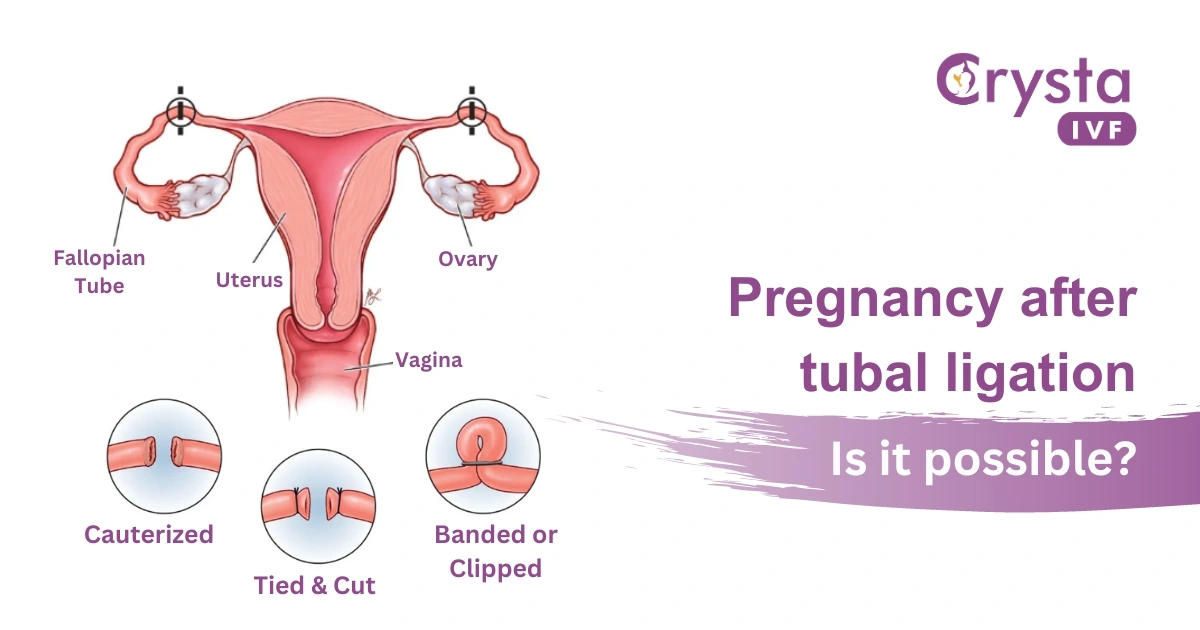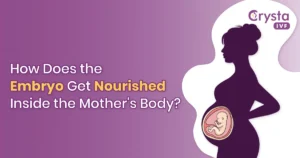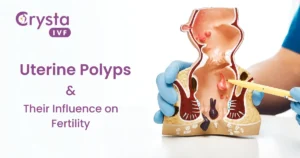
Medically Reviewed By
Dr. Nidhi Sehrawet

Every year, more and more women are going under tubal ligation or tying their tubes to prevent pregnancy for a short period, or those who do not wish to have children. Also, it is the most accepted form of birth control worldwide, and it is more effective than any of the short-term, user-dependent reversible contraceptive methods.
However, in some cases, the problem arises when a woman who has already undergone tubal ligation plans to get pregnant and faces many complications.
So to break the myth and give an insight into your reproductive health after tubal ligation, we are going to answer all your questions related to pregnancy outcomes after tubal ligation. But before that, buckle up and get ready to deep dive in to understand the term “tubal ligation.”
Understanding Tubal Ligation: A Comprehensive Guide to Female Sterilization
Also known as “getting your tubes tied,” tubal ligation is an option for women who no longer wish to have children. This outpatient surgical procedure involves blocking or cutting your fallopian tubes (A pathway to carry your egg from the ovaries to the uterus). Female sterilization prevents a released egg from your fallopian to the uterus, where egg fertilization takes place. In short, it obstructs the entire reproduction process.
However, tubal ligation is an effective method for preventing more pregnancies, but it is still not a full stop yet. An estimated 1 out of every 200 women can become pregnant even after tubal ligation. Also, tied tubes can elevate your risk of ectopic pregnancy. This is where a fertilized egg gets implanted in the fallopian tubes instead of traveling to the uterus. You should be aware that an ectopic pregnancy can turn into an emergency. So, it’s important to monitor your health on time before it’s too late and look into the possibility of pregnancy after tubal ligation.
Is it possible to get pregnant after tubal ligation?
Contrary to popular belief, the fallopian tubes can grow back together over time. And in some cases, getting pregnant after tubal ligation is possible just because the surgeon performed the procedure incorrectly.
Though the medical world considers tied tubes a permanent method of birth control, one in every 200 women still becomes pregnant even after undergoing the procedure.
Moreover, if a woman wishes, a surgeon can reverse tubal ligation by rejoining the fallopian tubes. However, the chances are that only 50–80 percent of women will become pregnant successfully after reversal surgery, So, read more to determine the risk of pregnancy after tubal ligation.
What’s the risk of pregnancy after tubal ligation?
From the beginning, the surgeon starts to perform a tubal ligation, the fallopian tubes are banded, cut, sealed, or tied. If there is any possibility of your fallopian tubes growing back, the pregnancy can result.
Generally, a younger woman is at greater risk when she has a tubal ligation. According to a recent study, the rates of pregnancy after tied tubes are:
- 5 percent of women younger than 28
- 2 percent of women between ages 28 and 33
- 1 percent of women older than 34
In certain conditions, it is possible that, after a tubal ligation procedure, a woman may also discover she is already pregnant. This can occur if the fertilized egg has already been implanted in her uterus before the tubal ligation surgery. Due to this, many women opt for tubal ligation just after giving birth or after the cycle of their menstrual period, when the risk of pregnancy is much lower.
In the case of normal pregnancy, a woman goes through many changes in her body, let’s take analyze the significant changes below.

Symptoms of Pregnancy
If by any chance your fallopian tube has grown back after tubal ligation, it’s possible that you could have a full-term pregnancy. However, there is a high rise in women opting to have a tied tubes reversal, where the doctor will put their fallopian tubes back together. Though this method is not 100% effective for women who wish to plan for a baby after the surgery, it still has a very low chance of happening.
- Unexplained fatigue
- Frequent urination
- Missed menstruation
- Tenderness in the breasts
- Cravings for certain foods and aversions to others
- Missing a period
The possibility of a normal pregnancy occurring naturally after tubal ligation is very low, as there is an elevated risk of getting affected by an ectopic pregnancy. So, let’s scroll down more to comprehend it in a better way.
Signs of Ectopic pregnancy
Any previous pelvic surgery, tubal ligation, or if you use of an intrauterine device (IUD) as a contraceptive method can increase your risk of ectopic pregnancy. In the early stage, the symptoms of ectopic pregnancy will appear like those of normal pregnancy, but as the fertilized egg is not implanted inside the uterus where it gets further nourishment to grow. Due to this, a normal pregnancy fails to occur. To identify the signs of ectopic pregnancy, scroll down-
Except for the traditional pregnancy symptoms, the signs of ectopic pregnancy include:
- Abdominal pain
- Light vaginal bleeding
- Pelvic pain
- Pelvic pressure (especially in bowel movements)
These symptoms are not normal and shouldn’t be ignored, as ectopic pregnancy can cause the fallopian tubes to rupture, which can result in internal bleeding and make you faint. You are advised to seek immediate medical attention if, along with the above-mentioned signs, you experience the following symptoms of ectopic pregnancy:
- Shoulder pain
- Severe vaginal bleeding
- Extreme pain in your stomach or pelvis
- feeling incredibly dizzy or collapsing
These are the severe signs that can affect your health drastically. If your healthcare provider identifies the signs of ectopic pregnancy at an early stage, certain medications will be prescribed to stop the egg from growing further or causing bleeding. Later, your doctor will monitor your human gonadotropin levels (a hormone associated with pregnancy).
Learn more about the treatment options for Ectopic Pregnancy
If this doesn’t work out, surgery will be performed to remove the tissue. Your healthcare provider will work diligently to repair your damaged fallopian tubes, and if a positive outcome isn’t found, the fallopian tubes will be removed. Long story short, it is necessary to talk to a fertility expert and know how you can plan for a normal pregnancy.
Talk to a fertility expert!
Though it is a fact that tubal ligation is a very effective contraception method, it isn’t 100% accurate in protecting you against unwanted pregnancy. And if you are trying to get pregnant after tubal ligation don’t be bothered about the successful outcome or ectopic pregnancy, then it is better to consult a fertility expert at the Best IVF Centre in Lucknow
The fertility specialists there will monitor your health condition and advise you to go for IVF to get pregnant.
In the in vitro fertilization method, mature eggs are harvested from a woman’s body and fertilized in a lab. Later, the fertilized egg develops into an embryo and is transferred to a woman’s uterus. This whole process circumvents the blocked fallopian tubes and makes the pregnancy process easy and possible.
In the end, making pregnancy possible even after tubal ligation. So, do not shed your dream of being a parent, especially when you have the top fertility experts at Crysta IVF to help you out in every step you take to build a happy family.




